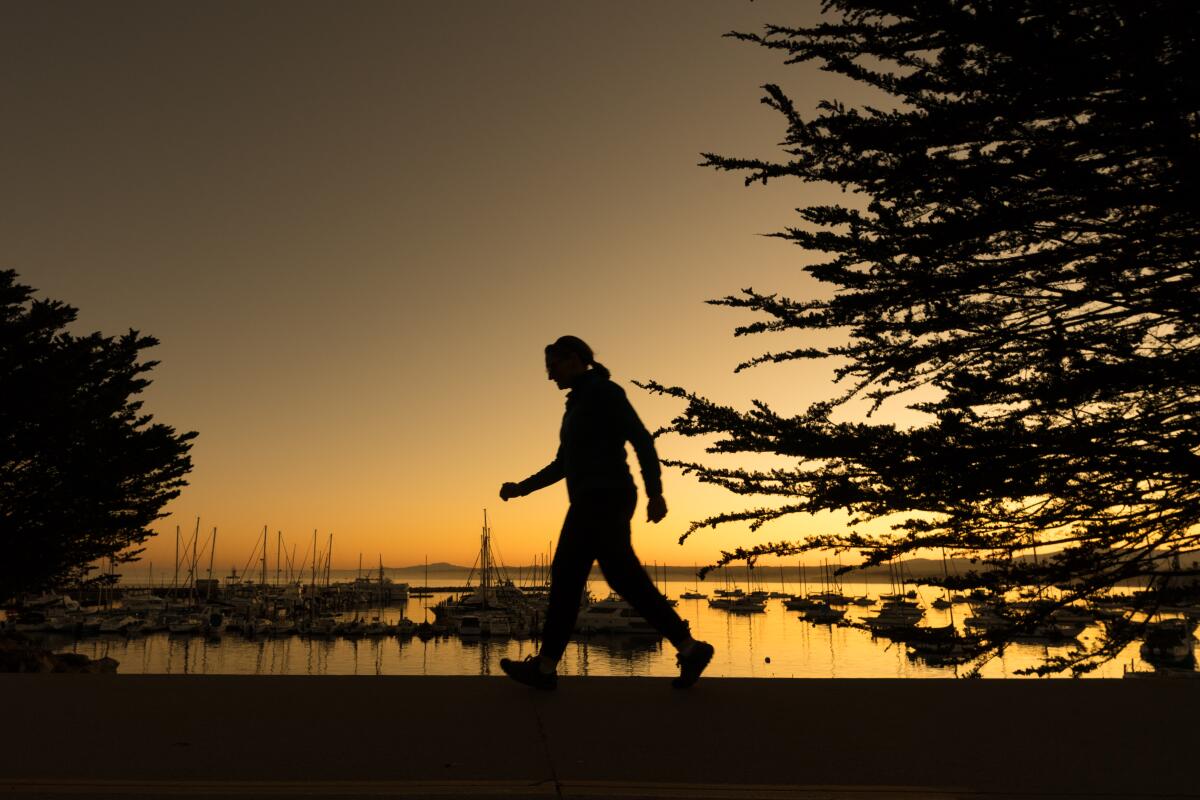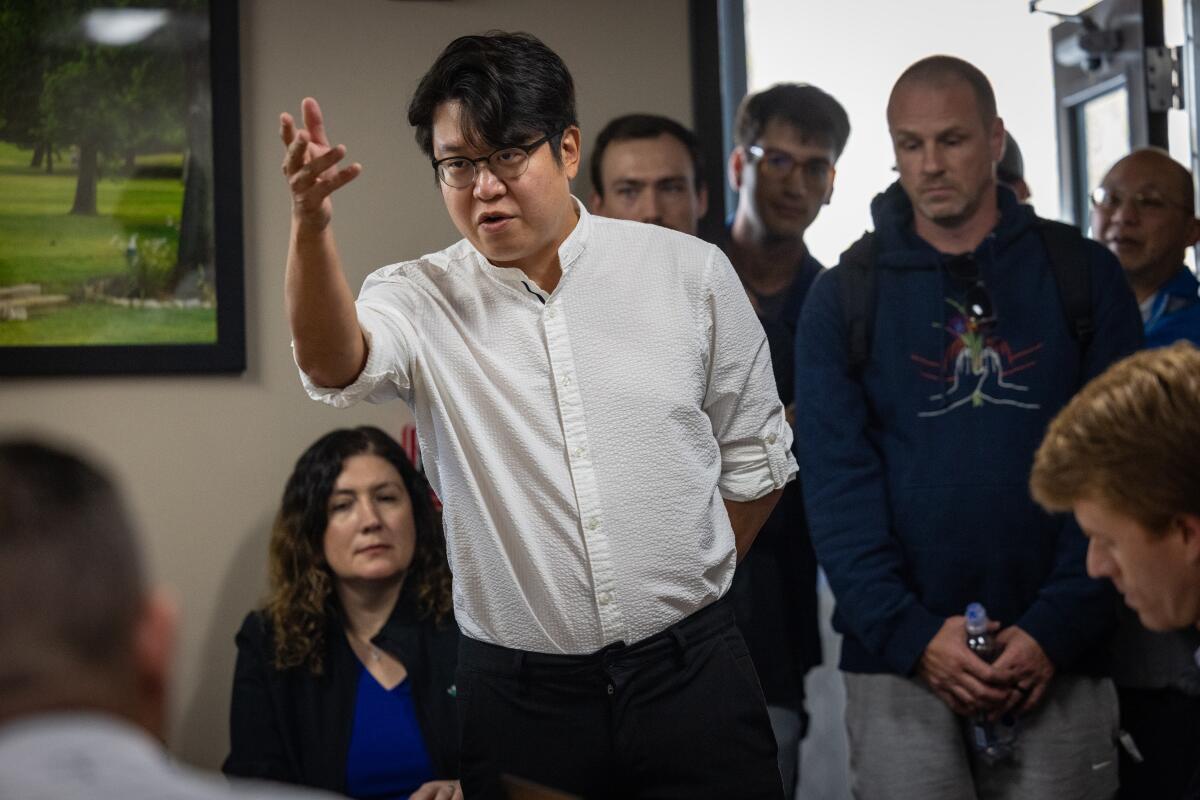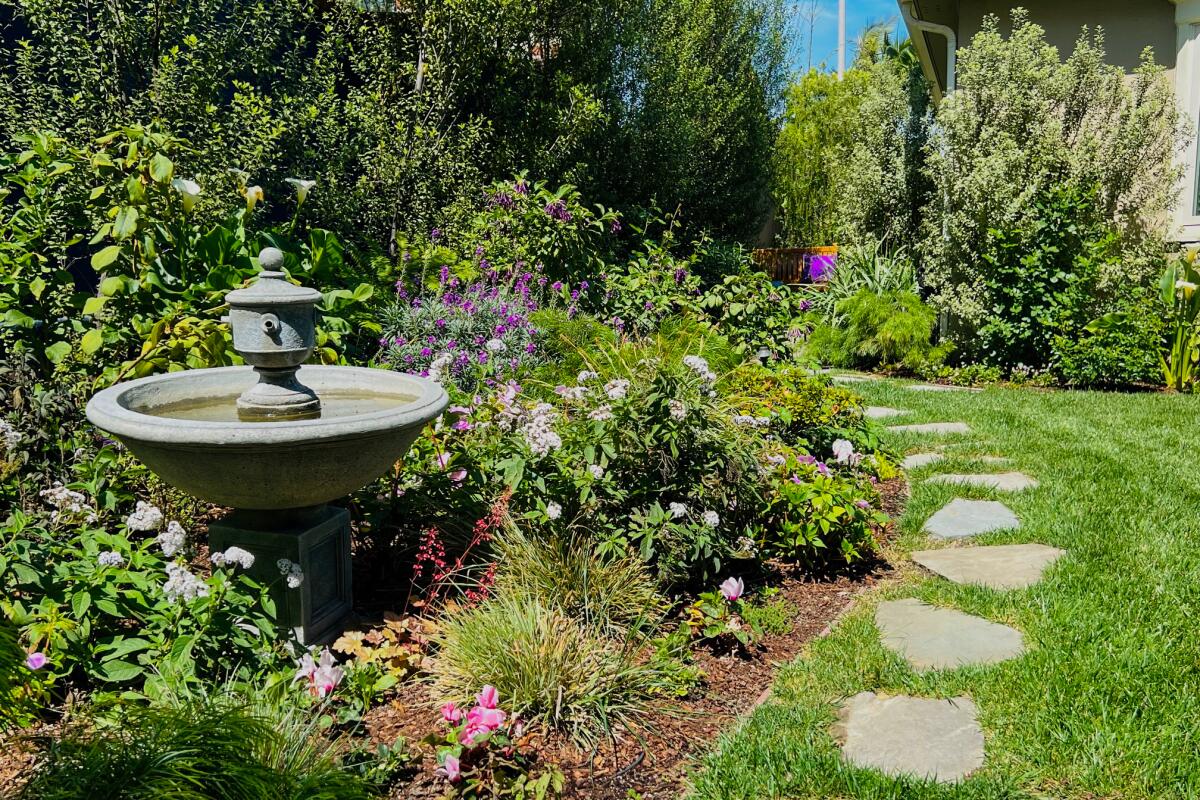California politicians are exploring ways to make you happy

Good morning. It’s Wednesday, March 20. Here’s what you need to know to start your day.
- A new committee is exploring how government could make Californians happier
- Golfers demand that L.A. officials stop booming black market in tee times
- How to get an inside look at gorgeous private gardens in and around L.A.
- And here’s today’s e-newspaper
Sign up for Essential California
The most important California stories and recommendations in your inbox every morning.
You may occasionally receive promotional content from the Los Angeles Times.
California politicians are thinking up ways to make you happy
Are you happy?
If so, why? If not, what would make you happier?
And this is a somewhat of an unusual question: Can the government play a role in your happiness?
These are some of the big questions a new committee of state lawmakers want to explore.
Last week, the state Assembly’s recently formed Select Committee on Happiness and Public Policy Outcomes held its first informational hearing, seeking to understand what makes people happy — and how government action could make Californians happier. There were more questions than answers.
How can politicians actually measure happiness?
“It’s an eternal question,” Rep. Anthony Rendon said. “And one [that’s] overdue in terms of us thinking about it in a formal way.”
The Lakewood Democrat and former long-serving Assembly speaker is chairing the new committee during his last year in office.
At this point, some of you may be rolling your eyes at the thought of a “California Happiness Committee.”
Rendon gets this. But what bothers him most is those who misunderstand the purpose of the committee and seek to inject their own, shall we say, alternative ideas. Think group yoga and feeling circles.
“This is not New Age bulls—,” Rendon told me this week. “We have two decades of very serious quantitative and qualitative data … indicators that are real and meaningful.”
Understanding the happiness deficit
It turns out, happiness is on the decline in the Golden State, according to the Public Policy Institute of California. In a September survey, 58% of adult Californians reported being “pretty happy,” 16% said they were “very happy,” and 26% said they were “not too happy.”
The core of California adults who say they’re “pretty happy” has been stable, Mark Baldassare, statewide survey director and the Miller chair in public policy at the institute, told the committee last week. But fewer adults in the state reported being “very happy” compared with previous surveys, and more said they were “not too happy,” according to Baldassare.
Rendon also noted research from Oxford University and the United Nations, presented in the annual World Happiness Report, which ranks countries based on the level of happiness reported by their people.
The rankings developed for the report are based on survey data from the Gallup World Poll, which includes a section asking individuals to evaluate their lives and emotions. Those responses are then weighted based on country demographics, then averaged over three years of responses to create an annual ranking.
Researchers also highlight six variables they say influence happiness around the world:
- Gross domestic product per capita.
- Social support.
- Healthy life expectancy.
- Freedom.
- Generosity.
- Corruption.
The report’s authors argue that the “effectiveness of the government has a major influence on human happiness of the people.”
The 2024 World Happiness Report was released Wednesday. According to its calculations, the 10 happiest countries are:
- Finland.
- Denmark.
- Iceland.
- Sweden.
- Israel.
- Netherlands.
- Norway.
- Luxembourg.
- Switzerland.
- Australia.
Happiness in the U.S. dropped in all age groups, researchers said. The U.S. ranked 23rd, down from 15th in last year’s report.
Happiness was especially low among younger U.S. residents. The report parsed out data showing just the happiness reported by younger respondents (those under 30), which put the U.S. down in 62nd place. Compare that with happiness reported by older respondents (those 60 and older), which put the U.S. in 10th.
Happiness, loneliness and the kingdom of Bhutan
The happiness committee hearing lasted more than 2½ hours and included testimony from a documentary filmmaker, a minister, the mayor of Fremont, Calif. (dubbed “the happiest city in America” by WalletHub) and a representative from the kingdom of Bhutan.
The small South Asian country inspired much of the recent research into happiness because of its long focus on it as a key metric of government performance. The country’s leaders enact policies to “create the right conditions that will allow people to pursue happiness,” said Phuntsho Norbu, consul general of the kingdom to the United States.
Panelists agreed strong social connections — among family, friends and local communities — are vital to a happier society. That’s not exactly an epiphany, but it comes at a time when many people in the U.S. are feeling more alone than ever.
Last year, U.S. Surgeon General Vivek Murthy released an advisory on the national epidemic of loneliness and isolation, which he said “represent profound threats to our health and well-being.”
“Social connection can be a proactive approach to living a fulfilled and happy life,” the advisory reads, adding that strong social ties can also enhance education outcomes and work performance, and help make communities “healthier, safer and more prosperous.”
One committee member, Assemblymember Pilar Schiavo, a Democrat representing the Santa Clarita Valley, took note of the “ripple effects of happiness” that panelists connected to the ongoing mental health crisis, especially among younger Californians.
“You don’t have kids walking into schools with guns to shoot people if they’re happy,” Schiavo said.
So what could government actually do to foster happiness?
Building a stronger social safety net could be key, Rendon said, noting that some of the countries with the highest happiness rankings also ensure services including universal healthcare and livable wages. It would also require a shift in what lawmakers prioritize.
“[We] need to realize that if everybody was fully housed and fully employed … that wouldn’t necessarily mean everyone was happy,” he said. “If social connections are the most important thing, then we have to think about how our society looks, how our workplace looks, our schools, how our communities look.”
Now we want to hear from the tens of thousands of Californians who subscribe to this newsletter for an unscientific but hopefully insightful reader survey.
This brings us back to that initial question: Are you happy?
What brings you happiness — or what would help you become happier?
And what role do you believe state and local governments could or should play in our happiness levels?
Take this survey to share your California happiness with us. You could see your and fellow readers’ responses in a coming edition of Essential California.
Today’s top stories

Angry golfers
- ‘I am angry’: Golfers demand that L.A. officials stop booming black market in tee times.
- Brokers are buying up precious tee times at L.A. city golf courses. Golfers are desperate and outraged.
Housing
- A crackdown on Airbnb and other short-term rentals is likely coming to unincorporated L.A. County.
- How student housing around USC is transforming a historic Black and Latino neighborhood.
- Realtor rules just changed dramatically. Here’s what buyers and sellers can expect.
Climate and environment
- What will shift to zero-emission trucks cost? $1 trillion for charging alone, a study says.
- Too much poop, trash and trampling of habitats shut down Big Sur’s only free camping site.
- A court upholds a state plan to require more water in California rivers.
- America’s four most-polluted national parks are in California, study finds.
Politics
- A divided Supreme Court clears the way for Texas to arrest migrants who enter illegally.
- Rep. Katie Porter says she regrets calling the California Senate primary ‘rigged.’
- Early voting has expanded significantly, but turnout growth hasn’t kept pace, a study finds.
More big stories
- California communities are banning syringe programs. Now the state is fighting back in court.
- Trump sues ABC News and George Stephanopoulos for defamation.
- Kate’s portrait of the queen and great-grandkids was ‘digitally enhanced,’ Getty Images says.
- The first over-the-counter birth control pill becomes available. Where is it sold?
- Dodgers vs. San Diego Padres in season opener: See live updates from Korea.
- L.A. looks at eliminating up to 2,000 vacant positions as the city’s budget outlook worsens.
- Mystery among the vines: Why is the FBI probing some of Napa Valley’s fanciest wineries?
Get unlimited access to the Los Angeles Times. Subscribe here.
Commentary and opinions
- Mark Z. Barabak: More than 30 states have elected female governors. Will California finally join them?
- Dylan Hernández: These Dodgers could be historic, or they could be another October disaster in the making.
- Tony Briscoe: Could the mega-merger of two California oil giants benefit the climate?
- Editorial: Supreme Court should affirm that government complaints are not free speech violations.
- Frank Shyong: Why are Taiwan’s 7-Elevens so much better than ours?
- Michael Hiltzik: Two Rutgers professors are accused of poisoning the debate over COVID’s origins. Here’s why.
Today’s great reads
The murder book gathered dust for 15 years. Who killed Aunt Ruby? Ruby Scott’s file remained classified as “cleared by arrest” even after three young brothers were cleared. Years passed and not a single fresh sheet of paper got added to the file.
Other great reads
- Inside ‘Moonlight’ writer Tarell Alvin McCraney’s inaugural Geffen Playhouse season.
- The San Patricios deserted the U.S. Army to fight for Mexico. To this day, their legacy lives on.
- For hard-hit tech workers, AI is a silver lining.
How can we make this newsletter more useful? Send comments to essentialcalifornia@latimes.com.
For your downtime
Going out
- 🌺🌼🌸How to get an inside look at gorgeous private gardens in and around L.A.
Staying in
- 📖 An Obama campaign staffer stars in the shimmering autobiographical novel ‘Great Expectations.’
- 📺 ‘Palm Royale’ — premiering Wednesday on Apple TV+ — is a brilliant, star-studded and stylish comedy led by Kristen Wiig.
- ⚾ Here’s how to stream Dodgers games this year, without paying for cable or satellite TV.
- 🧑🍳 Here’s a recipe for kuku sabzi (Persian greens frittata).
- ✏️ Get our free daily crossword puzzle, sudoku, word search and arcade games.
And finally ... a great photo
Show us your favorite place in California! We’re running low on submissions. Send us photos that scream California and we may feature them in an edition of Essential California.

Today’s great photo is from Times photographer Allen J. Schaben at the launch of Space X’s Falcon 9 carrying 22 Starlink satellites to low-Earth from Vandenberg Space Force Base.
Have a great day, from the Essential California team
Ryan Fonseca, reporter
Kevinisha Walker, multiplatform editor
Stephanie Chavez, deputy metro editor
Check our top stories, topics and the latest articles on latimes.com.
Sign up for Essential California
The most important California stories and recommendations in your inbox every morning.
You may occasionally receive promotional content from the Los Angeles Times.






